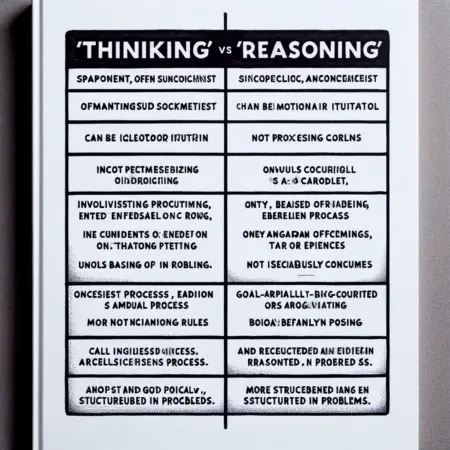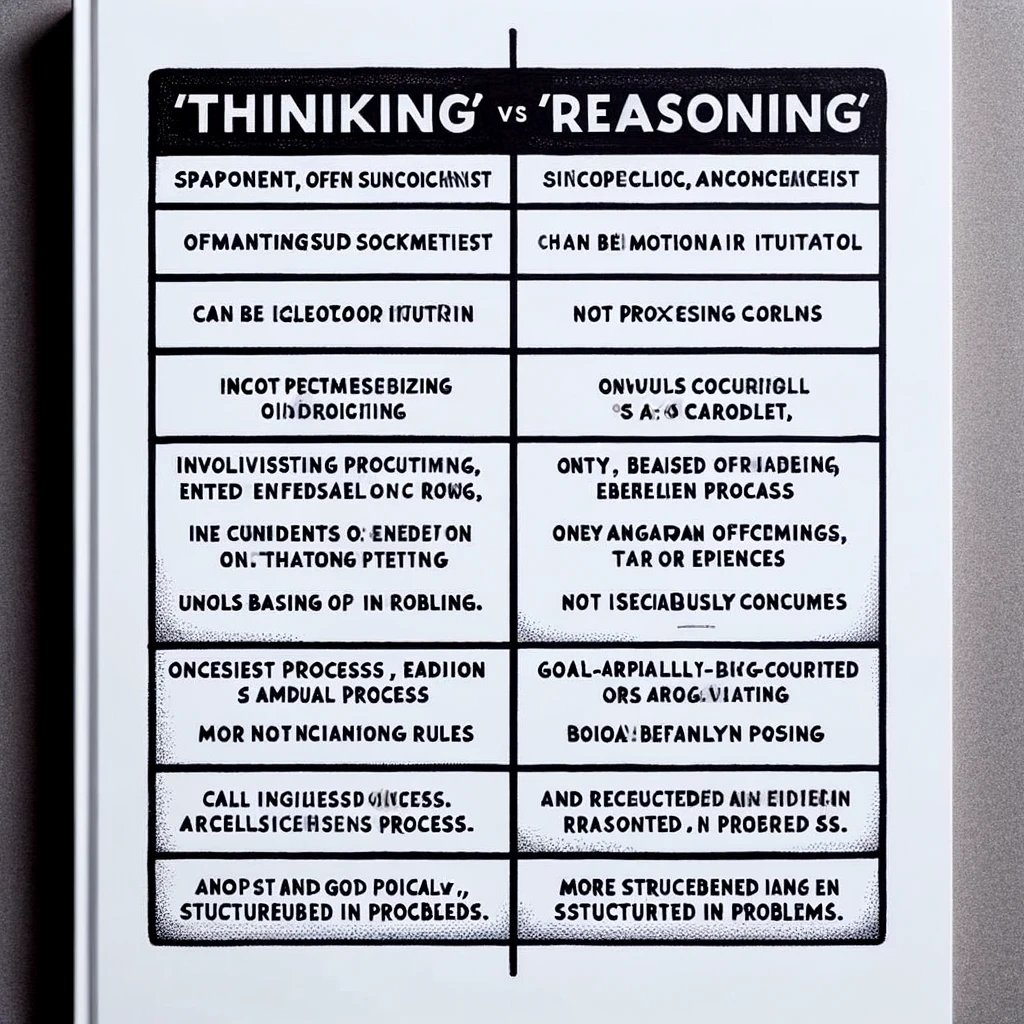Thinking and reasoning are two different mental processes . Thinking encapsulates a large arena of thought production that can be conscious or unconscious. On the contrary, reasoning is limited to the production of mentally conscious thinking, using logic. As you can see from the definitions itself, as opposed to reasoning, thinking is not always logical, nor is it conscious .
What is thought?
In academic disciplines, such as philosophy, psychology, biology, and neurology, the thought process is studied. It is claimed that all human beings have the ability to think, although how thoughts are produced is still a topic of discussion. In philosophy, thought is seen as one of the foundations of human life. Rene Descartes’ ideas clearly highlight this (‘I think, so I am’).
Thoughts allow people to organize their ideas and feelings. It can also be considered as one of the basic factors that underlie human behavior. Thought can be both a conscious process and sometimes an unconscious process as well – as is the case with psychoanalysis. Of the various branches of psychology, cognitive psychology focuses on thought processes. Cognitive psychologists study how the thinking process changes when individuals reach different stages of life, from childhood to adulthood.
What is reasoning?
Reasoning is also a mental process, but it can be understood as a sub-process of thinking. However, the main difference is that, unlike thinking that can be conscious or an unconscious process, reasoning is definitely a conscious process. This requires logic. A reasoner uses the various facts involved in a specific issue and tries to understand logically and find a solution to the problem.
Reasoning is closely associated with ideas such as good and evil, truth and lies, cause and effect. Reasoning allows us to identify an action and analyze whether it is positive or negative, beneficial or harmful based on available facts and logic.
However, psychologists point out that when people reason they are not always dominated by the facts themselves, but can be influenced by cultural elements. Reasoning especially helps us when we run into problems or when we are going to make a decision. It allows us to weigh the pros and cons and choose what is best.
What is the difference between thinking and reasoning?

Definitions of thinking and reasoning:
Thinking: Thinking is a mental process that does not necessarily use logic
Reasoning: reasoning is a mental process that uses logic.
Features of thinking and reasoning:
Conscious / Unconscious:
Thinking: Thinking can be conscious or unconscious.
Reasoning: reasoning is always a conscious effort.
Logic:
Thinking: Logic does not play a fundamental role in thinking.
Reasoning: Logic plays a key role in reasoning.
Process:
Thinking: Thinking is a large process.
Reasoning: reasoning is a subcategory of the thought process.
Sure, let’s create a comparison table to highlight the differences between thinking and reasoning:
| Aspect | Thinking | Reasoning |
|---|---|---|
| Definition | A mental process where ideas, images, and thoughts occur spontaneously. | A logical process of deriving conclusions and judgments from premises or facts. |
| Nature | Often subjective and personal. | Generally objective and structured. |
| Process | Involves various mental activities like remembering, daydreaming, associating, and imagining. | Involves logical steps like analyzing, deducing, and inferring. |
| Goal | Not necessarily goal-oriented; can be aimless or exploratory. | Aimed at solving problems or making decisions based on logic. |
| Structure | Can be disorganized and free-flowing. | Structured and follows rules of logic. |
| Examples | Wondering about the future, reminiscing, creative thinking. | Solving a math problem, making a decision based on evidence, scientific hypothesis testing. |
| Reliance on Facts | May or may not rely on facts and information. | Heavily relies on factual information and evidence. |
| Influence | Influenced by emotions, beliefs, and personal experiences. | Less influenced by emotions; more based on rationality and existing knowledge. |
This table contrasts the more spontaneous, personal nature of thinking with the structured, logical nature of reasoning. While thinking encompasses a broad range of mental activities, reasoning is specifically about drawing conclusions based on logic and evidence.
Conclusion
In conclusion, thinking and reasoning may be closely related, but they differ in terms of their approach, purpose, objectivity, and influence on decision-making and problem-solving. Thinking is a subjective and intuitive process that allows us to explore possibilities and generate ideas, while reasoning is an objective and logical process that aims to draw conclusions and make informed judgments. Both processes are vital for our cognitive development and play significant roles in our everyday lives. So, next time you find yourself pondering a complex decision or trying to find a solution to a problem, consider whether you need more thinking or reasoning to guide your thought process.
